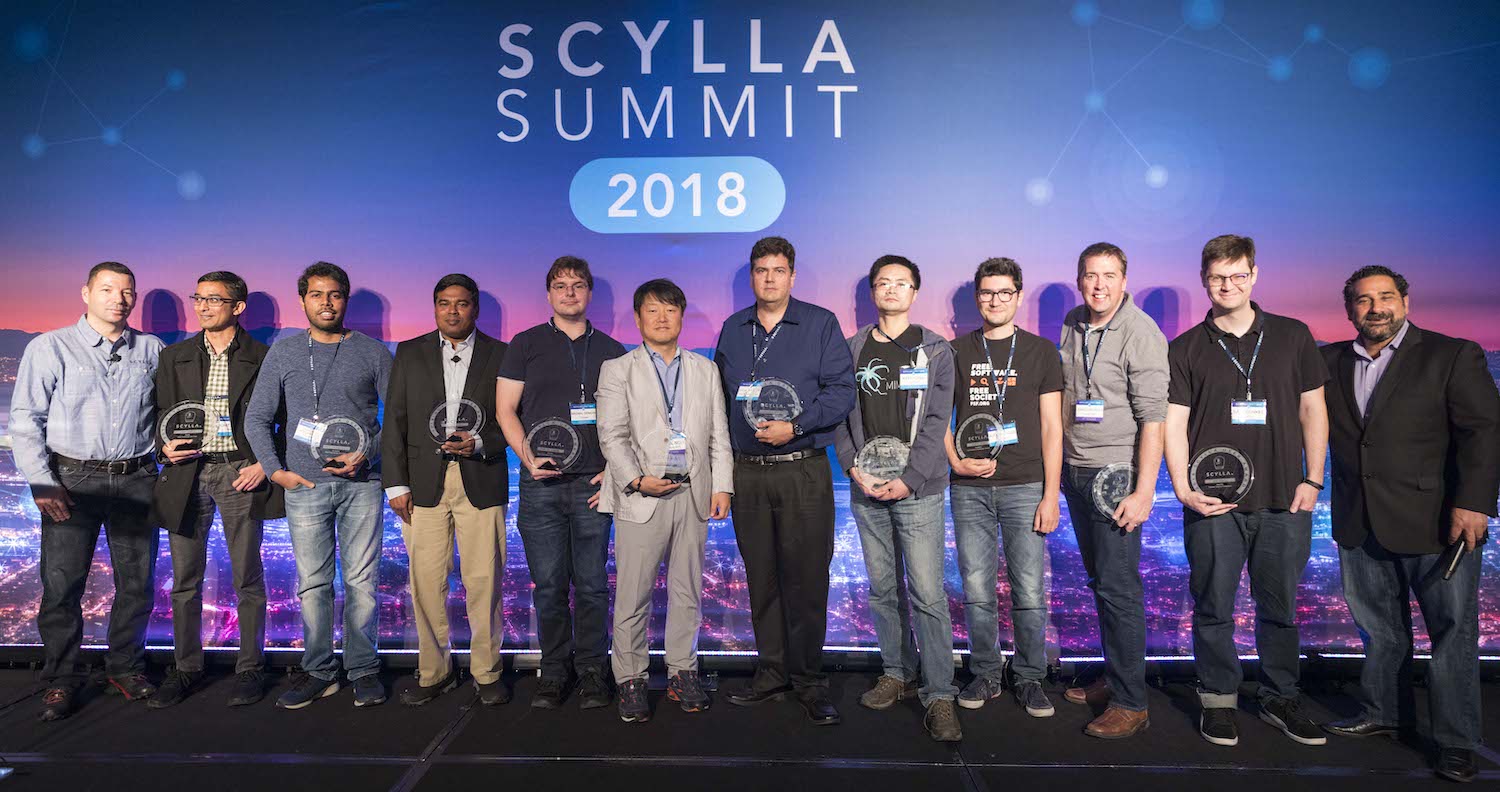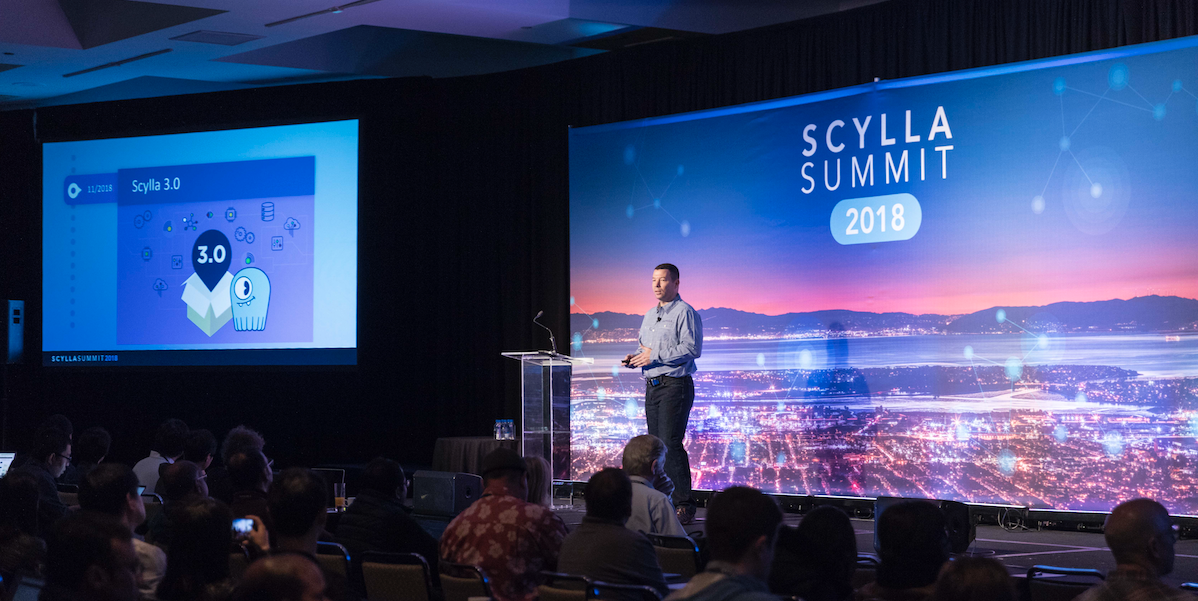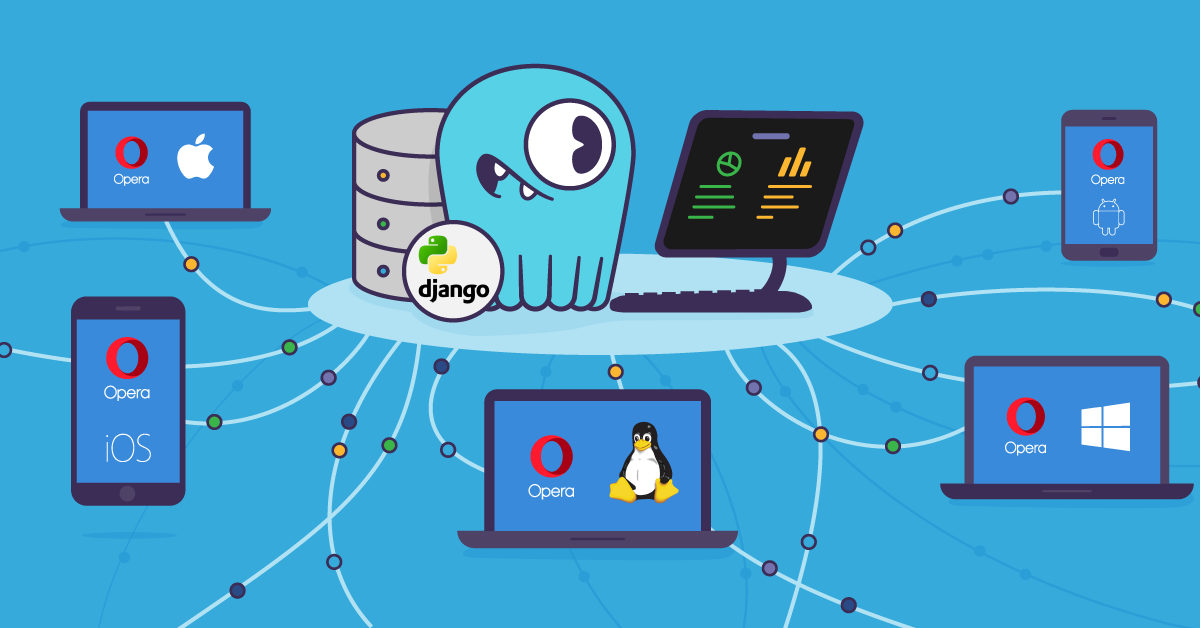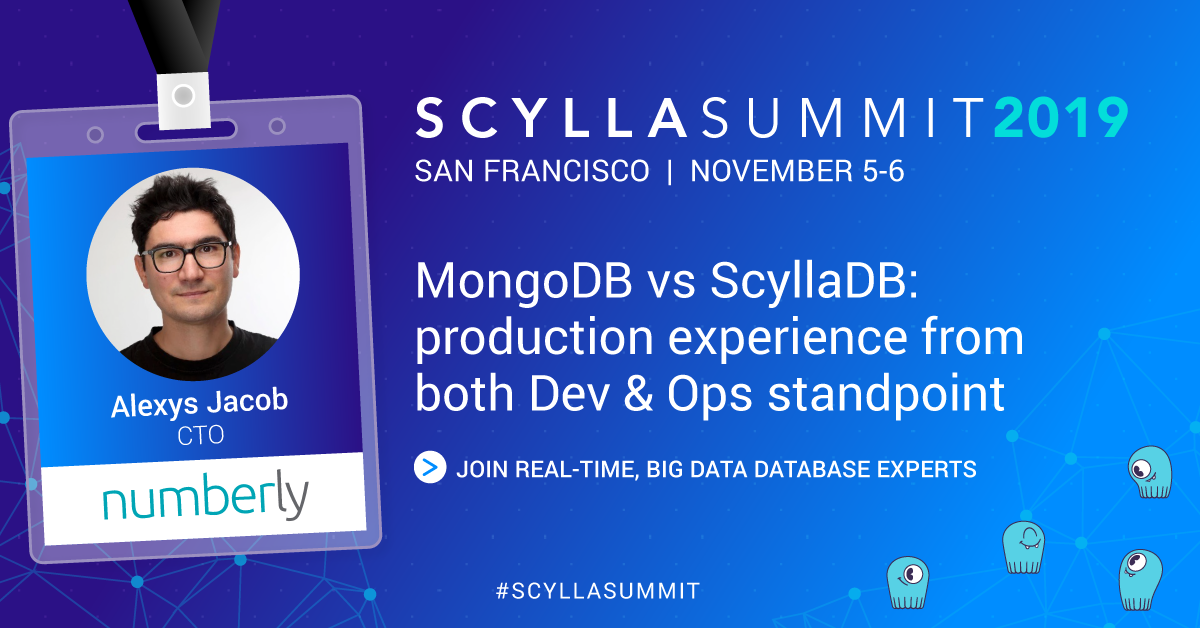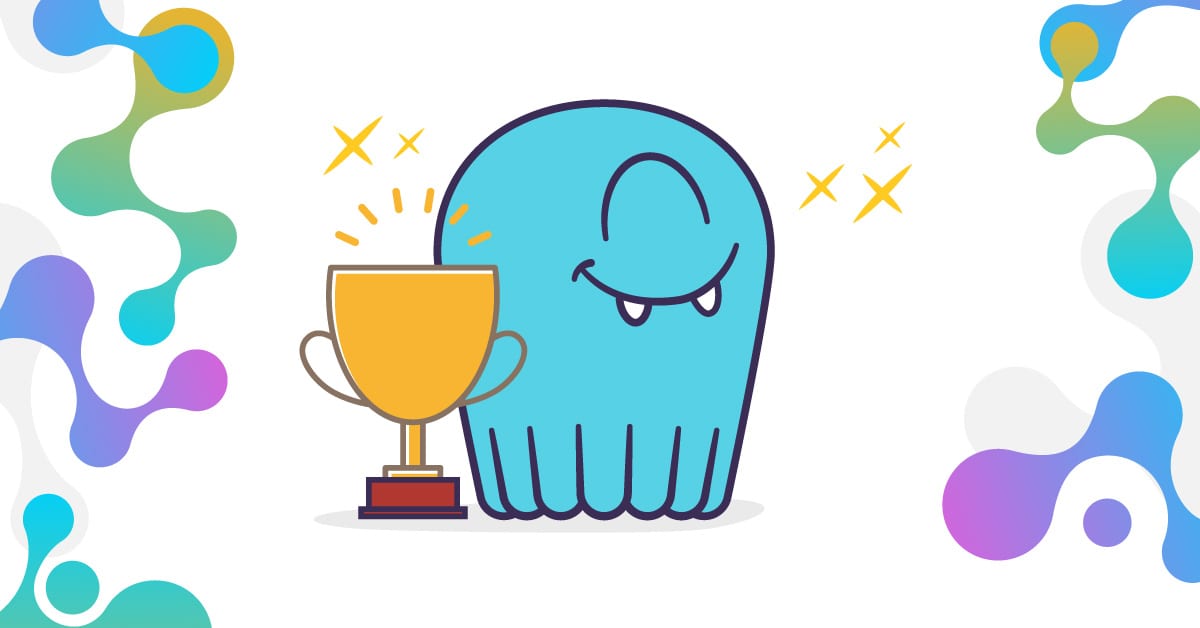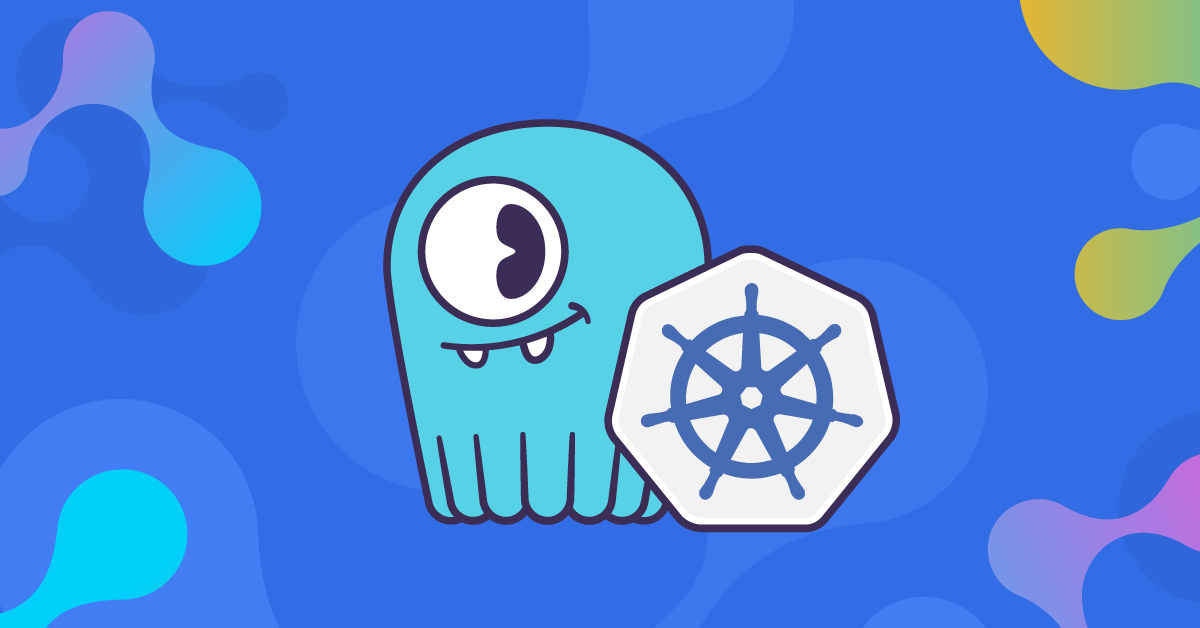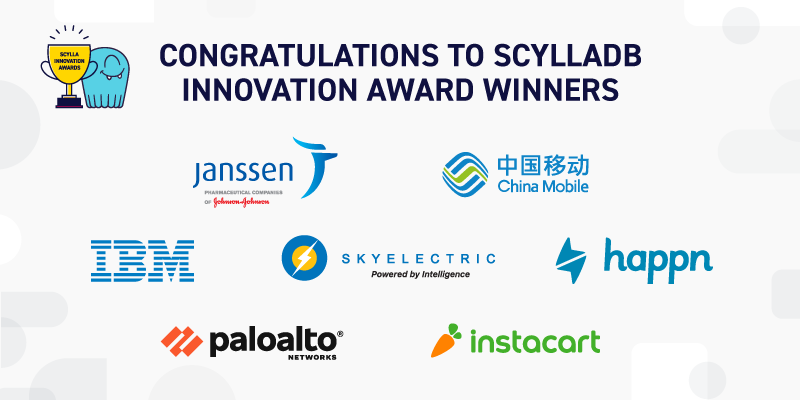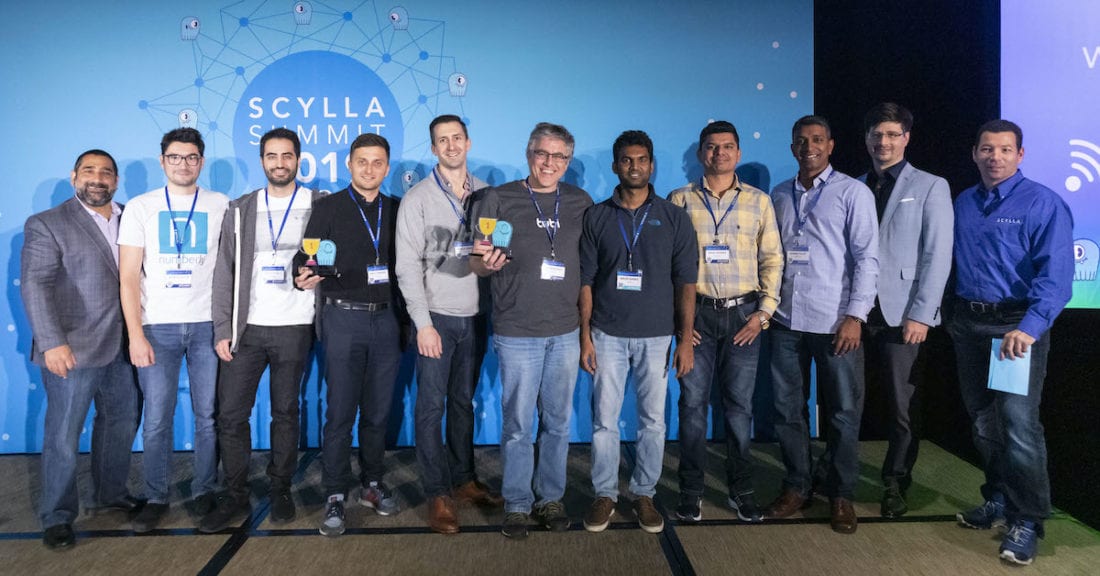
The Envelope Please…
There are many highlights from our 2019 ScyllaDB Summit this week. One of our favorites from Day 1 was our ScyllaDB User Awards, our opportunity to recognize the impressive things our users are doing with ScyllaDB.
This year we had winners in nine categories. I’m glad for the chance to share them here, along with a bit of color on their use case.
Best Use of ScyllaDB with Spark: Tubi
Streaming company Tubi has a backend service that uses pre-computed machine learning model results to personalize its user home pages. Hundreds of millions of them are generated per day in Spark. ScyllaDB is used for the persistence layer. Tubi chose ScyllaDB because they needed “a NoSQL solution that is very fault-tolerant, fast reads/writes, and easy to set up plus maintain.”
Best Use of ScyllaDB with Kafka: Grab
Southeast Asia’s leading super app, Grab developed a microservices architecture based on data streaming with Apache Kafka. These streams not only power Grab’s business, they provide a vital source of intelligence. Grab’s engineering teams aggregate and republish the streams using a low-latency metadata store built on ScyllaDB Enterprise.
Best Use of ScyllaDB with a Graph Database: FireEye
Cybersecurity company FireEye built its Graph Store using JanusGraph, which uses both ScyllaDB and ElasticSearch for backend storage. They have more than 600 million vertices and over 1.2 billion edges, occupying over 2.5TB of space. After comparing NoSQL databases to serve as a backend, FireEye found ScyllaDB to be roughly 10X faster than other options.
Best Use of ScyllaDB Cloud (NoSQL DBaaS): Dynamic Yield
Dynamic Yield bills itself as an omnichannel personalization platform built by a team that is known to “eat, sleep and breathe data.” In their industry-leading platform, they combined ScyllaDB with Apache Flink and Apache Spark to power their Unified Customer Profile, which also made GDPR compliance far easier to for them to implement.
Greatest Node Reduction: Comcast
Telecommunications and entertainment leader Comcast Xfinity has been migrating from Cassandra to ScyllaDB with tremendous benefits. To date, Comcast has replaced 962 nodes of Cassandra with just 78 nodes of ScyllaDB. That’s a 92% reduction in nodes! The significantly smaller footprint brings great costs savings in both hardware and administration.
Best Real-Time Use Case: Opera
Web browser company Opera lets you to synchronize your browsing data (bookmarks, open tabs, passwords, history, etc.) between your devices. After migrating to ScyllaDB, Opera managed to reduce their P99 read latencies from 5 seconds to 4ms (a 99.92% reduction), and their P99 write latencies from 500ms to 4ms (a 99.2% reduction). This helps them push updates to connected browsers much faster than ever before. Beyond latency improvements, Opera shared that “migrating to ScyllaDB helped us to sleep well at night.”
Best Analytics Use Case: Kiwi.com
Travel leader Kiwi.com won in this category for cohabitating analytics and operational stores on the same box, and reducing their footprint 30% by using Bypass Cache. Their data, based on flight bookings, is constantly and rapidly changing. In fact, Kiwi.com experiences a 100% turnover in their dataset every ten days. Their need to do analytics against their ever-changing data via full table scans requires them to have a database that can meet their analytics workloads without impacting their live customer transactions.
Community Member of the Year: Yannis Zarkadas, Arrikto
Yannis Zarkadas from data management company Arrikto was winner of Best ScyllaDB Community Member for his work on the Kubernetes Operator for ScyllaDB. He said: “Working on the Kubernetes Operator as part of my diploma thesis at Arrikto was a great experience. The ScyllaDB team was always there if I needed advice or suggestions, and the Operator turned out even better than I’d hoped. ScyllaDB and Kubernetes are a natural fit.”
Most Innovative Use of ScyllaDB: Numberly
AdTech pioneer Numberly has combined ScyllaDB with Kafka Connect, Kafka Streams, Apache Spark and Python Faust, built on Gentoo Linux and deployed on bare-metal across multiple datacenters, all managed with Kubernetes. All of that resulted in reengineering a calculation process that used to take 72 hours but can now be delivered in just 10 seconds.
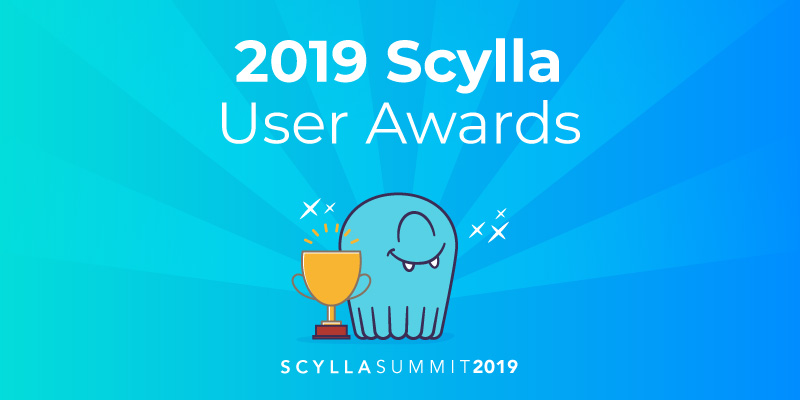
We congratulate all of our winners, and also thank everyone who has been making ScyllaDB such a vital part of their enterprises and a vibrant open source NoSQL database software community. If you have created your own groundbreaking applications built on ScyllaDB, we’d love to hear more about it! Contact us privately or join us on Slack and tell us all about it!

